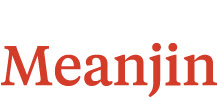This old dude will be snoring at midnight,
so may you all have a happy and prosperous
New Year 2015.

Night Before Christmas in Aussie land
'Twas the night before Christmas; there wasn't a sound. Not a possum was stirring; no-one was around. We'd left on the table some tucker and beer, Hoping that Santa Claus soon would be here; We children were snuggled up safe in our beds, While dreams of pavlova danced 'round in our heads; And Mum in her nightie, and Dad in his shorts, Had just settled down to watch TV sports. When outside the house a mad ruckus arose; Loud squeaking and banging woke us from our doze. We ran to the screen door, peeked cautiously out, snuck onto the deck, then let out a shout. Guess what had woken us up from our snooze, But a rusty old Ute pulled by eight mighty 'roos. The cheerful man driving was giggling with glee, And we both knew at once who this plump bloke must be. Now, I'm telling the truth it's all dinki-di, Those eight kangaroos fairly soared through the sky. Santa leaned out the window to pull at the reins, And encouraged the 'roos, by calling their names. 'Now, Kylie! Now, Kirsty! Now, Shazza and Shane! On Kipper! On, Skipper! On, Bazza and Wayne! Park up on that water tank. Grab a quick drink, I'll scoot down the gum tree. Be back in a wink!' So up to the tank those eight kangaroos flew, With the Ute full of toys, and Santa Claus too. He slid down the gum tree and jumped to the ground, Then in through the window he sprang with a bound. He had bright sunburned cheeks and a milky white beard. A jolly old joker was how he appeared. He wore red stubby shorts and old thongs on his feet, And a hat of deep crimson as shade from the heat. His eyes - bright as opals - Oh! How they twinkled! And, like a goanna, his skin was quite wrinkled! His shirt was stretched over a round bulging belly Which shook when he moved, l ike a plate full of jelly. A fat stack of prezzies he flung from his back, And he looked like a swaggie unfastening his pack. He spoke not a word, but bent down on one knee, To position our goodies beneath the yule tree. Surfboard and footy-ball shapes for us two. And for Dad, tongs to use on the new barbeque. A mysterious package he left for our Mum, Then he turned and he winked and he held up his thumb; He strolled out on deck and his 'roos came on cue; Flung his sack in the back and prepared to shoot through. He bellowed out loud as they swooped past the gates- MERRY CHRISTMAS to all, and goodonya, MATES!' |
|
Posted: 24 Dec 2014 06:42 PM PST
 All free digital versions. NEW TO THE ARCHIVE: in appreciation of the new typographically correct edition of Hannah Weiner's Clairvoyant Journal by Bat-editions ( |

 |
16.12.2014
|
Summer is here, and so is the December issue of Meanjin. In the new issue, Ashlynne McGhee finds hope in a new generation of young journalists, James Douglas looks at George RR Martin’s distinctive gift for narrative acrobatics, Katherine Hattam exhibits a series of works about the forgotten places in our cities, plus we present a host of new fiction, memoir, essay and poetry.
News
Meanjin relies on our passionate community of readers to support us, as well as generations of Australian writers. Now we want to know more about you, our readers: who you are and what you care about. If you haven't already, please take our 10-minute audience survey and enter into the draw to win an iPad Mini or a holiday book pack from MUP.
And in even bigger news, Meanjin is looking for a new editor to take over from our current editor Zora Sanders, who will be returning to study in 2015 (read more about it on Bookseller + Publisher). And while we are sad to see Zora go, it's always exciting to welcome a new person into our small team. Know the perfect candidate for the job? Find more information and a full position description here.
Subscribe
You can give the gift of Australian literature this Christmas with a Meanjin gift subscription, and for the many of you whose subscriptions end with the last issue of the year, don't forget to resubscribe. Subscribe to Meanjin.
| |
Poem of the week:
April and Silence
by Tomas Tranströmer
Translated from Swedish by Robin Fulton
Spring lies desolate.
The velvet-dark ditch crawls by my side without reflections.
The only thing that shines
is yellow flowers.
I am carried in my shadow
like a violin in its black box.
The only thing I want to say
glitters out of reach like the silver in a pawnbroker's. |
 China’s print and broadcast watchdog says puns may mislead the public – especially children. Photograph: Chen Li/ Chen Li/Xinhua Press/Corbis
China’s print and broadcast watchdog says puns may mislead the public – especially children. Photograph: Chen Li/ Chen Li/Xinhua Press/Corbis